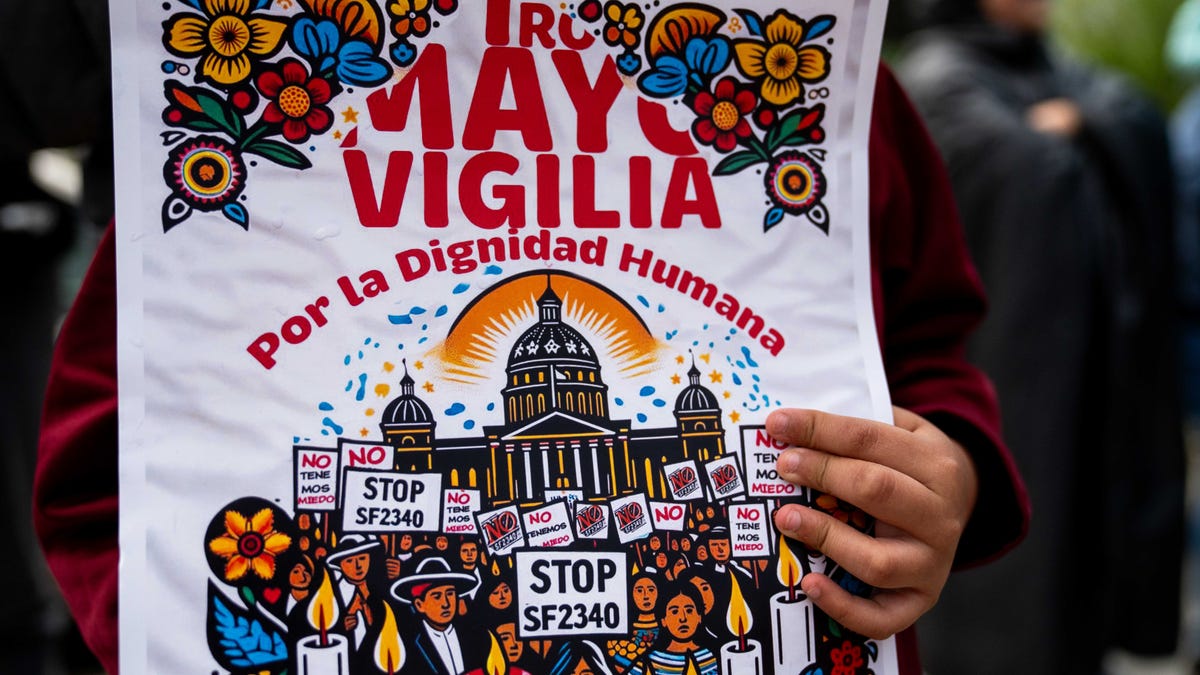A federal judge did not err when finding an Iowa immigration enforcement law likely unconstitutional, a federal appellate court ruled.
But it is sending the case back to determine whether the state should nonetheless be allowed to enforce the law in some cases.
The Eighth U.S. Circuit Court of Appeals’ Oct. 23 decision upholds an injunction blocking Iowa from enforcing Senate File 2340, which Gov. Kim Reynolds signed in April 2024 to make “illegal reentry” a crime under state law.
In a lawsuit bought by the Iowa Migrant Movement for Justice, Judge Stephen Locher ruled last year that immigration enforcement is explicitly a federal responsibility and Iowa’s law is invalid under the U.S. Constitution.
“As a matter of politics, the new legislation might be defensible,” Locher wrote in June 2024. “As a matter of constitutional law, it is not.”
Thursday’s decision is technically the second time the 8th Circuit has ruled against the law.
Originally, Iowa was sued twice: by Migrant Movement for Justice and the Biden Administration. Locher granted injunctions in both cases, and in January, the 8th Circuit affirmed his ruling in the DOJ lawsuit and dismissed the second injunction as duplicative.
Shortly after, though, the Trump administration dismissed the federal government’s challenge, and the court agreed to rehear and rule on the injunction in the Migrant Movement for Justice case.
What did Iowa’s immigration law do?
Under the 2024 law, entering or residing in Iowa after being deported from or denied entry to the U.S. or failing to depart when ordered became a state offense. It followed a similar law Texas adopted, both of which have since been blocked by courts.
The Iowa law also required judges to order anyone convicted under the law to return to their country of origin.
In his order blocking the law, Locher identified several problems: Most glaringly, a 2012 U.S. Supreme Court decision found that state-level immigration laws interfere with and are preempted by federal immigration enforcement.
In the case of Iowa, Locher noted, having state judges order people to leave the country bypasses the extensive and often case- and country-specific federal system to decide when, how, and to where a person can be deported.
‘Divisive and harmful’: Iowa immigrants fear racial profiling with new ‘illegal reentry’ law
“This creates an untenable dichotomy between federal and state law in an area where the Supreme Court has recognized that the United States must speak with a single, harmonious voice,” Locher wrote.
The law also does not make any exceptions for people with current legal resident status. That’s a problem for several of the plaintiffs in the Migrant Movement case, who at one time were deported or denied entry but later were able to obtain legal residency.
While Attorney General Brenna Bird said she did not intend to enforce the law against legal residents, Locher noted county prosecutors would not be bound by her statement.
8th Circuit finds law likely unconstitutional
In it’s ruling Thursday, the 8th Circuit once again upheld Locher’s reasoning.
Judge Duane Benton wrote for the court that Iowa’s law intrudes into federal immigration authority even further than the Arizona law struck down by the U.S. Supreme Court in 2012.
Allowing state officials not only to detain people for suspected immigration violations, but to order them removed from the country, with a potential prison sentence of 10 years, greatly exceeds the state’s powers under the U.S. Constitution, the court found.
More: Iowa’s new immigration law relies on local police, but many doubt they can enforce it
The court rejected Iowa’s arguments in defense of the law, finding that many ran contrary to the plain text of the statute.
For example, where Bird argued the law only required the state to deliver aliens to a “port of entry” — namely, the Des Moines airport — and would have no effect outside the state’s borders, the appeals court noted the law requires migrants to leave the entire country, not just the state, under penalty of prison.
“Any enforcement of the act would likely conflict with federal law by interfering with the enforcement discretion that federal law gives to federal officers,” Benton wrote. “(Plaintiffs) have clearly shown that their facial challenge is likely to succeed on the merits because every application of the Act stands as an obstacle to the accomplishment and execution of the full purposes and objectives of Congress.”
Yes, but: to whom does the injunction apply?
Locher’s injunction blocked any state agent, including county prosecutors, from enforcing the law against anyone. That may be too broad, the appellate court says.
In a June 2025 case against Donald Trump, the U.S. Supreme Court significantly limited the use of “universal injunctions” that apply beyond the parties in a particular case.
In light of that ruling, the 8th Circuit is directing Locher to consider whether he has authority to block enforcement by all state officers, as opposed to just those named in the lawsuit, and whether the law can be enforced against individuals who are not members of Iowa Migrant Movement for Justice.
Regardless of how the injunction may be modified, the lawsuit is likely to continue.
Locher’s June 2024 order put in place a preliminary injunction, blocking the state from enforcing the law while the case progressed. Barring further appeals, Thursday’s appellate decision means the case will continue before Locher for further proceedings before the court could potentially make its injunction permanent.
William Morris covers courts for the Des Moines Register. He can be contacted at wrmorris2@registermedia.com or 715-573-8166.




























